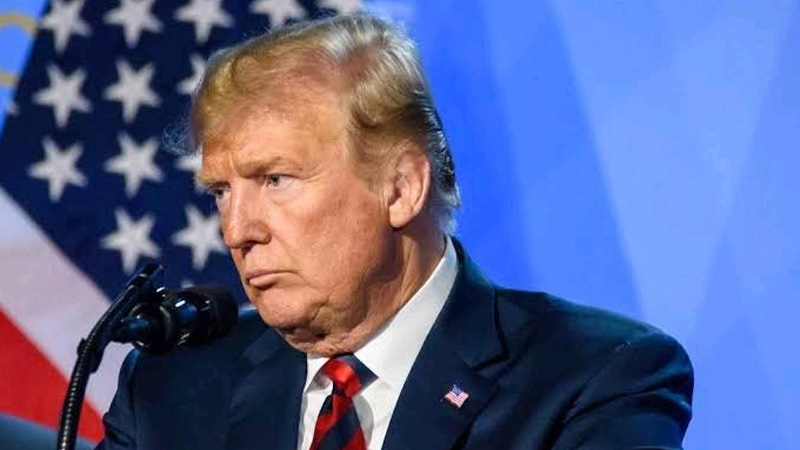Trump Faces Major Setback as US Pastor Sparks Chilling Revelation, Sending Republicans Into Turmoil

[Image:Associated Press]
In a dramatic turn of events that has sent shockwaves through the political landscape, a U.S. pastor’s chilling revelation has plunged Republicans into turmoil.
Doug Pagitt, a Minneapolis-based evangelical pastor, has predicted that Vice President Kamala Harris could “break the back of the MAGA [Make America Great Again] movement,” delivering a major setback to former President Donald Trump. This bold assertion, which Pagitt detailed in an opinion piece for MSNBC, has ignited fears within the GOP that Harris may disrupt the stronghold Trump has maintained over white evangelical voters—a cornerstone of his political base.
Historically, white evangelical Christians have been a linchpin for Republican electoral victories, consistently supporting GOP candidates by significant margins. In the 2016 election, for example, 80 percent of white, born-again/evangelical Christians voted for Trump, compared to just 16 percent for Hillary Clinton, according to Pew Research Center data. Pagitt’s claim that Harris could sway this traditionally Republican bloc has sent ripples of anxiety through Republican circles, as they contemplate the potential consequences of such a dramatic shift.
In a report by Newsweek dated Sunday August 25, 2026, Pagitt, who also serves as the executive director of Vote Common Good, an organization focused on encouraging religious voters to prioritize the common good over party loyalty, believes that Harris has a unique opportunity to capture evangelical support. His optimism is fueled by what he perceives as growing disillusionment among some evangelicals with Trump’s conduct, which they view as incompatible with their Christian values. This discontent, Pagitt argues, could pave the way for Harris to make significant inroads with this critical voter group.
Vote Common Good has been actively working in key battleground states like Michigan, Wisconsin, and Pennsylvania, aiming to tip the scales in Harris’ favor by swaying religious voters who may be reconsidering their allegiance to Trump. Pagitt’s confidence stems from past successes, such as in Kent County, Michigan, where his organization’s efforts contributed to a significant swing from a Trump win in 2016 to a Biden victory in 2020. He believes that similar outreach could yield comparable results in other regions, potentially reshaping the electoral map.
At the heart of Pagitt’s prediction is the idea that many religious voters are struggling with the moral implications of supporting Trump. He points to issues such as the separation of migrant families, Trump’s treatment of women and the press, and his general demeanor, which many see as contrary to the teachings of Christianity. For these voters, Pagitt suggests, Harris represents a viable alternative—someone who can align with their values without the moral compromises they associate with Trump.
While the prospect of a significant evangelical shift may seem unlikely, Pagitt emphasizes that even minor changes in this voter base could have a profound impact on the election outcome. His strategy involves not only direct voter engagement through rallies and roundtables but also training Democratic candidates on how to effectively communicate with faith-based voters. The goal is to present Harris and the Democratic platform as aligned with the core principles of evangelical Christianity, such as social justice and community welfare.
The Harris campaign appears to be attuned to this potential opportunity. The selection of Minnesota Governor Tim Walz as Harris’ running mate is seen by some as a strategic move to appeal to Midwestern religious voters. However, Pagitt insists that Democrats need to do more to actively court the evangelical vote, arguing that it is possible to win over this group without compromising the party’s values.
The pastor’s revelation has sent the Republican Party into turmoil, as they confront the possibility that Trump’s grip on evangelical voters could be weakening. With the 2024 election fast approaching, the GOP faces the daunting task of shoring up support within this critical demographic, while contending with the growing perception that Trump’s brand of politics is increasingly out of step with evangelical values. As Pagitt’s predictions gain momentum, the idea that Kamala Harris could lead a significant evangelical shift has left Republicans in turmoil, scrambling to address the cracks forming in their once-solid base.





